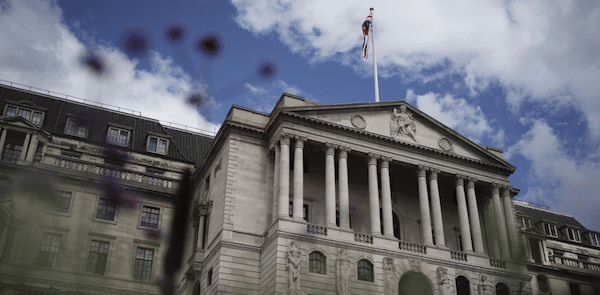WHEN an economy shrinks, as did the British economy last month, it triggers an alarm bell to all those who live not by their labour but by ours.
Among the proximate causes of this threat to profitability is the Bank of England’s so-called anti-inflation policy which has jacked-up interest rates to a high not seen for nearly two decades.
Sterling has weakened against both the U.S. dollar and the Euro. The Office of National Statistics reports that Britain’s Gross Domestic Product fell by 0.3 per cent, just one expression of wage growth slackening.
Just to keep perspective on these numbers, remember that wages as a proportion of the national income have fallen over a thirty-year period.
In the mid 1970s, when trade union power, shop-floor organisation and militancy were at their peak, the workers’ share of GDP climbed from a post-war low of a bit over 50 per cent to just over 64 per cent. Then began a bumpy decline to around the low fifties.
At the same time the gap between the collective income of working people and the wealth accumulated by the rich has widened.
When we call this the Great Wage Grab we could equally call it the Great Profit Grab.
It is not surprising that the consequence of government and Bank of England policy to extract more money from working people via raised rents, increased mortgages, hiked-up energy costs and food prices is a decline in demand.
Set this against a decline in workers’ purchasing power and we have a classic, occasionally moderating but always present, crisis of the capitalist system.
The Trades Union Congress says that in 2023 the economy lost around £400 billion of GDP compared with a projection of the forecast made by the Office of Budget Responsibility in 2010. Compared with a projection from ahead of the global financial crisis, the loss forecast for 2027 approaches £900bn .
The TUC response is to argue, correctly, that this crisis should not be inevitable. And it references what it calls the “necessary rebalancing” of the economy effected by the post-war government with a call to “restore the global foundations for a labour internationalism, and in the UK to repair the infrastructure of the past and build a new green infrastructure for the future.”
Setting aside some painful questions about the largely illusory “internationalism” of Labour governments which quickly adopted a Cold War policy of domestic sacrifice for military expenditure, we can see how the living conditions of British workers–underpinned by a “social wage” that included free education, mostly free health care and affordable public housing plus rising wages–gave a certain buoyancy to the the British economy.
Since the mid 1970s, the recurrent crises of the British economy–and its political system–have worsened the situation for working people as a whole and we can see this in the general crisis of education, healthcare, housing which goes alongside recurrent wars of imperial power and plunder.
The last two years have shown how workers and their trade unions and campaigning organisations find ways to resist. And we have had some outstanding examples of imaginative and effective leadership and inspiring mass actions.
But we have to face the truth that we have not regained much of what we have lost.
This must compel a deeper look at the prospects of significant advance within the present system and a sensible investigation of what it takes to win what we can within the capitalist system and how much more we can achieve with power fully in the hands of workers.

